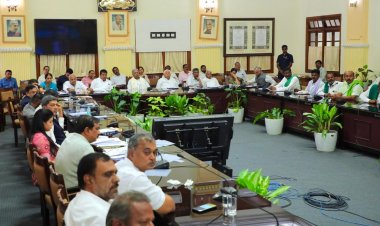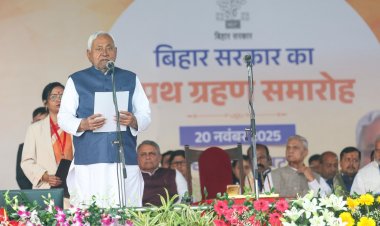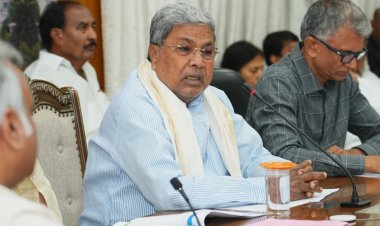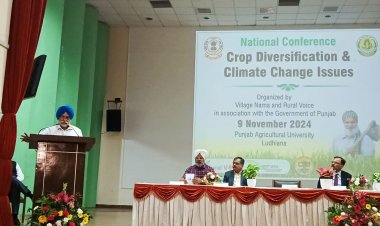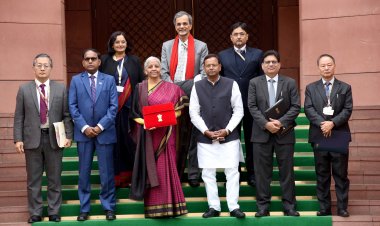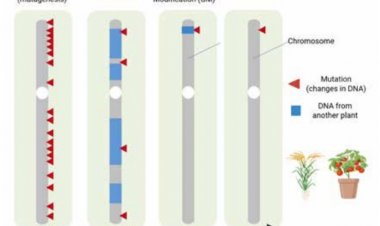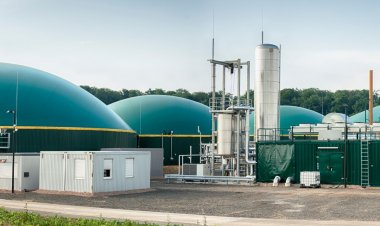India exports apricots to Singapore, Mauritius, Vietnam
The Government of India's Ministry of Commerce and Industry gave the much-needed boost to the export of agricultural and food products from Ladakh, an extremely cold region in Northern India. The Ministry through its export promotion body Agricultural and Processed Food Products Export Development Authority (APEDA) promoted handholding of apricot value chain stakeholders to enhance export from Ladakh under the brand ‘Ladakh Apricot’.
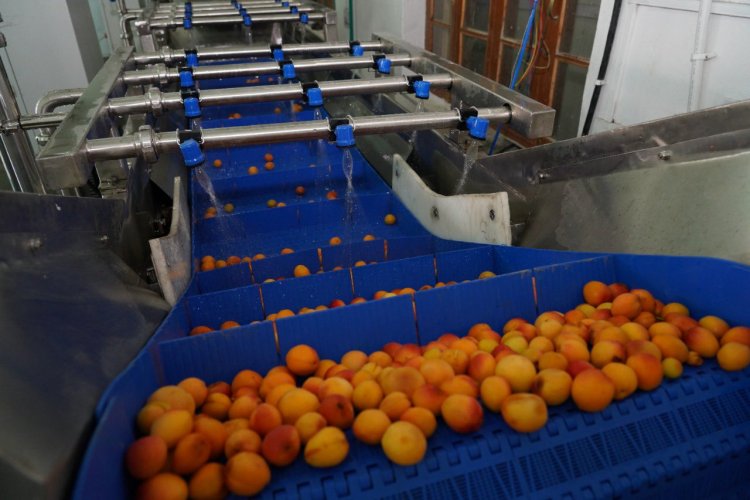
India exported 35 tonnes of fresh trans-Himalayan apricots to Singapore, Mauritius and Vietnam during the 2022 season after the famous Ladakh produce got a fillip from the Central government.
The Government of India's Ministry of Commerce and Industry gave the much-needed boost to the export of agricultural and food products from Ladakh, an extremely cold region in Northern India.
The Ministry through its export promotion body Agricultural and Processed Food Products Export Development Authority (APEDA) promoted handholding of apricot value chain stakeholders to enhance export from Ladakh under the brand ‘Ladakh Apricot’.
APEDA had identified fresh apricot fruit exports from the Union Territory (UT) of Ladakh during the year 2021 and trial shipments were sent to Dubai during the fag end of the apricot season 2021.
The results and acceptability of the product were overwhelming due to its unique taste and aroma as well as the demand for the product in the international market.
Ladakh is the biggest apricot producer in India with a total production of 15,789 tonnes. The region produced approximately 1,999 tonnes of dried apricot, making it the largest producer of dried apricot in India. The total area under apricot cultivation is 2,303 hectares in Ladakh.
Work on obtaining a GI tag for the Ladakh Apricot is also in process.
APEDA's efforts towards export promotion of apricots and other agri-products would give a fillip to the overall development of the region.
The export promotion strategy of APEDA gives thrust on canopy management of the apricot orchard/trees to obtain a uniform and better-quality harvest of apricots.
The strategy will help in sustained marketing, product development, research and development, enhancement of traceability and brand promotion of apricot, which is one of the important fruit crops of Ladakh and is locally known as Chuli.
APEDA, in coordination with Ladakh’s Horticulture Department, has also planned to organize awareness drives through canopy management in Kargil and Leh, wherein scientists from Sher-e-Kashmir University of Agricultural Sciences and Technology, Kashmir (SKUAST-Kashmir) and Defence Institute of High-Altitude Research (DIHAR) will help farmers to manage their apricot orchards/trees in a better way to have a uniform harvest.
APEDA is also focusing on strengthening packaging for fresh apricots, transport protocol and Brand Promotion ‘Ladakh Apricots’ for better price realization of apricots of trans-Himalayan Ladakh, which are known for their better quality.
Notably, the bulk of the apricot produced in Ladakh is consumed locally and only a small quantity of it is sold in dried form.
Given that logistics support plays a key factor in the export promotion of any product, APEDA is working towards augmentation of logistics support of apricots by air on the lines of the market linkage scheme — PARVAZ — and by road to the nearest international exit ports for streamlining the exports from the region.
APEDA, in association with the UT of Ladakh, is also facilitating the development of export infrastructures such as setting up of integrated pack house facilities with grading lines, pre-cooling units with cold storages and insulated/refrigerated transportation up to packhouse/exit ports, common infrastructure facilities such as pre-shipment treatment facilities like irradiation, Vapor Heat Treatment and Hot Water Dip Treatment for compliance with phytosanitary requirements of importing countries.
APEDA organized an international buyer-seller meet in Leh in June this year just before the commencement of the apricot harvest season.
Over 30 buyers from India, the US, Bangladesh, Oman, Dubai and Mauritius were mobilized to interact with the producers and suppliers of apricots and other agricultural products from the UT of Ladakh.
As a result, during the 2022 season, 35 tonnes of fresh apricots were exported to various countries from Ladakh for the first time. Trial shipments of Ladakh apricots were made to countries like Singapore, Mauritius and Vietnam during the 2022 season.
In view of the uniqueness and premium quality of apricots of Ladakh, there is immense scope for the product to emerge on the world map of apricot production and export.
Ladakh Apricot is classified into two broad categories based on kernel taste and stone colour. Fruits with bitter kernels are called Khante, meaning bitter, while those with sweet kernels are called Nyarmo, meaning sweet.
These are further divided into two sub-groups based on seed stone colour. Fruits with white seed stones are called Raktsey Karpo (Rakstey means seed, karpo means white), while those with brown seed stones are called Raktsey Nakpo (black-seeded).
(Subhashis Mittra is a New Delhi-based senior journalist, freelance writer and public policy analyst.)



 Join the RuralVoice whatsapp group
Join the RuralVoice whatsapp group

















